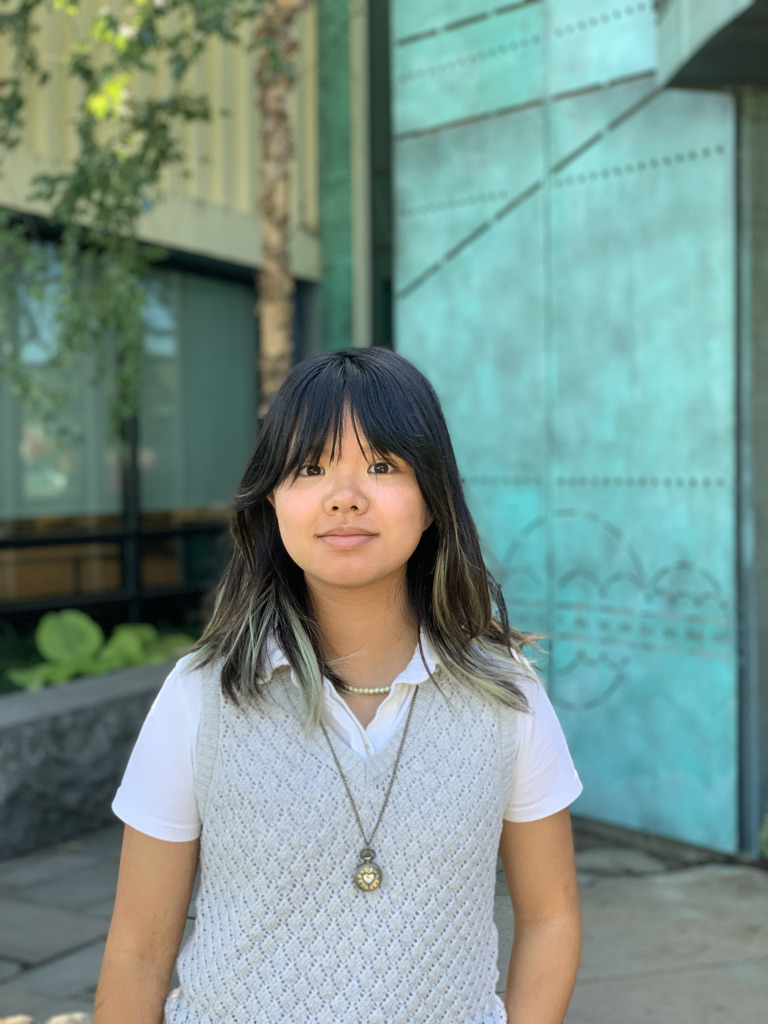What the woods taught me about writing

Driving deep into the woods of Western Massachusetts last July, I caught a glimpse of glowing wildgrass wedged between a field of slim tree trunks and felt that I’d arrived at a turning point in my life. The wheels of my heavy suitcase crunched against the gravel of the Simon’s Rock campus as I waved goodbye to my parents; and there, introducing myself to my redhead roommate dressed in pink, I stepped foot into one of the most transformative three weeks of my life. It seems impossible, perhaps, to describe a life-altering experience in any amount of words, but if there was one thing I learned from the Young Writer’s Workshop, it was the writer’s ability to contain infinities in mere sonnets. Why else, other than the feeling of having made timeless the flickering heat of their heart and imagination, does one pick up a pen and write?
Led by our mentor Sharon, the class played hopscotch using our words. We wrote plays mocking mansplainers, essays on social justice, fiction on friendship, and reminiscent recountings of our childhood. My previous fear towards writing, sparked by a thousand inner perfectionistic critics, began to melt. The days I spent in the workshop peeled away at my thick layer of precautions about writing and revealed a creative agility I had no idea I possessed. I learned, through the daily “freewrites,” to let the pen glide faster than the brain and surprised myself with the words that spilled out. I began to regard my work and my life with a meditative indifference, which completely opposed my previous, judgment-filled lifestyle. Lying amongst the tall and tickling grass outside, I felt more at peace than I had in a long time. That, in and of itself, was joyful.
“Poetry,” an article wrote, “is a living transmission whose evolution is linked to other bodies in time.” I had never quite felt that truth the way I did on picnics surrounded by pine trees, mosquitos, and my four friends who I deemed kindred spirits. There was Acadia, who I knew I would be obsessed with the instant she told me she had lugged, inside a trash can, all thirteen of the books she’d placed onto the shelves of our shared room. Her art was as red as her hair. Madhavi, who despite always wearing a flowy black skirt, shined (in still life and in poetry) yellow like wildflowers on the hill where we spent our afternoons. Sophie, who was a mirror image of myself taking pictures of the moon, brandished her stories with startling poignancy about the loneliness in coming of age. Julia, who was quite the homesick poet I’d chosen to sit next to in the workshop, never stopped writing verses about oceanside romances in second person. (Luckily enough, it was her lucid similes of emotion and justifiably harsh criticisms on writing that made me believe in poetry).
No amount of five-star adventure novels or famous author talks could have competed for the company of my friends. It was them, after all, who taught me that writing was not the isolation I’d known it to be. When we weren’t hard at work revising and redrafting our portfolios, we lingered by a field of overgrown weeds and chatted about our shared interests. There was truly a fearful abundance of them. We’d take advantage of the campus ice cream cart and slide mint ice cream into watery breakfast cappuccinos. Just before curfew, we’d slip out to search for the moon and listen to gurgling frogs by the pond. On our last night there, we caught a shooting star.
Teary-eyed in my room, I stare at the rendering on the wall of our day at the field. My golden brushstrokes had trapped an endless moment into a memento of my time spent, and I cannot help but smile at it. My friends are scattered across the country now: New York, New Jersey, Tennessee. My backpack is heavy with binders and notes from six different classes. Still, on a quiet weekday afternoon, I pull my journal out from beneath a stack of Sylvia Plath and Mary Oliver collections and begin to write. I find that I am a lot less afraid.


